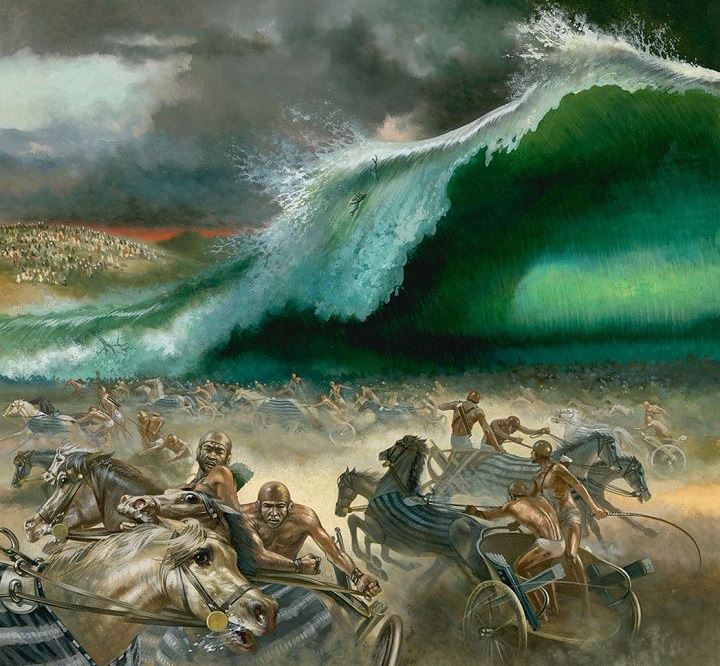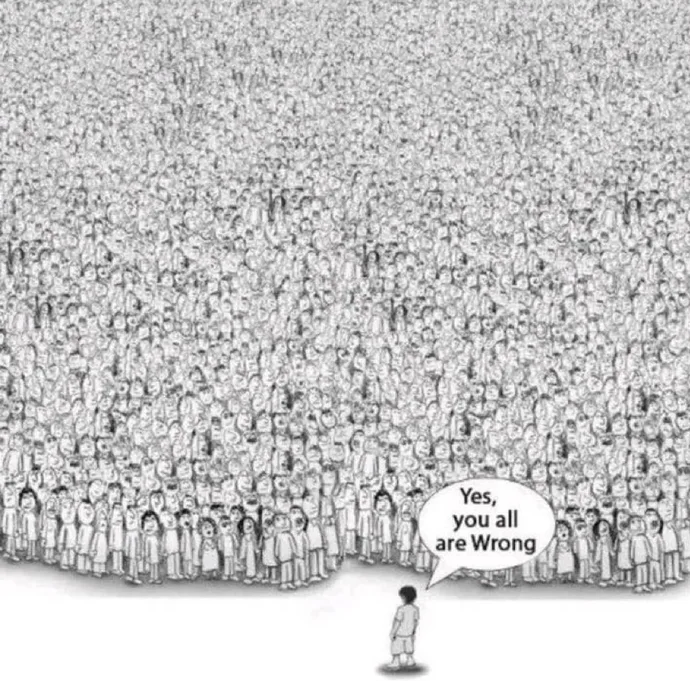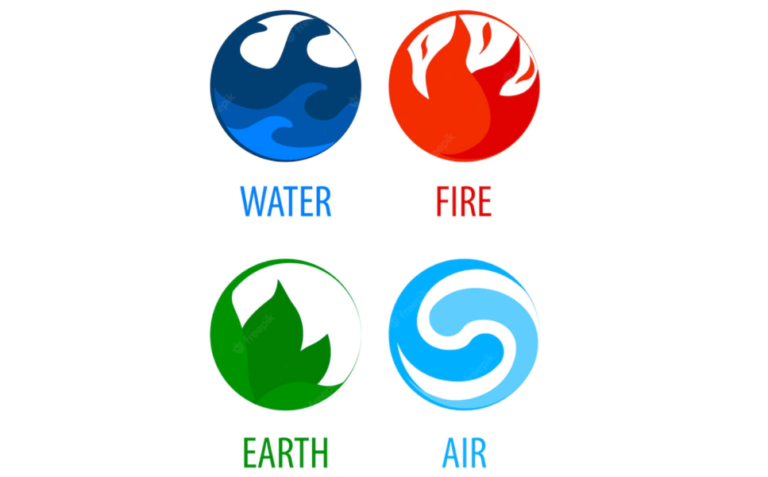For This Reason You Were Chosen

Why the Kehunah was Taken from Moshe and Given to Aharon
One might have thought that the final day of the Mishkan's inauguration would have been flawless – a day of unparalleled perfection and joy. But that wasn't the case at all. Not only was Aharon put to the test when Hashem abruptly killed Nadav and Avihu, but Moshe Rabbeinu was also put to the test by Hashem. In what way? How was Moshe put to the test on that fateful day?
After serving in the role of the Kohel ha-Gadol for the seven days of the inauguration, we read the following (Vayikra 9:7): וַיֹּאמֶר מֹשֶׁה אֶל־אַהֲרֹן קְרַב אֶל־הַמִּזְבֵּחַ וַעֲשֵׂה אֶת־חַטָּאתְךָ וְאֶת־עֹלָתֶךָ וְכַפֵּר בַּעַדְךָ וּבְעַד הָעָם וַעֲשֵׂה אֶת־קׇרְבַּן הָעָם וְכַפֵּר בַּעֲדָם כַּאֲשֶׁר צִוָּה יְיָ (And Moshe said to Aharon, Draw near to the mizbeach and do [the service of] your chatat and your olah, and make atonement for you and for the nation, and do [the service of] the korban of the nation and make atonement for them, as Hashem commanded). On the surface, this pasuk seems fairly straightforward; however, Rashi tells us something rather surprising about why Moshe had to tell Aharon to approach the mizbeach: שֶׁהָיָה אַהֲרֹן בּוֹשׁ וְיָרֵא לָגֶשֶׁת אָמַר לוֹ מֹשֶׁה לָמָּה אַתָּה בוֹשׁ? לְכָךְ נִבְחַרְתָּ (Since Aharon was embarrassed and afraid to approach, Moshe said to him, Why are you embarrassed? For this you were chosen).
Let's try to understand. Aharon was embarrassed. And for that very reason he was told to step forward? Let's put this into context. Imagine a child, embarrassed and terrified to stand before a large crowd of people to give a speech or play a musical instrument. Specifically because he's embarrassed and afraid, the people in charge choose him to get up on stage!? He doesn't want to get on the stage. He's terrified to go up on the stage! So for this reason, we're going to tell him (or maybe even compel him) to get up on the stage? Perhaps this makes good sense to some people – which might explain why many adults are still terrified to do something in front of large groups of people – but for the rest of us, the dynamics here are very difficult to understand. What's going on?
To address this dynamic, the Megaleh Amukot focuses on the fact that Rashi chose the words לְכָךְ נִבְחַרְתָּ [for this you were chosen] instead of the words כִּי נִבְחַרְתָּ [because you were chosen]. Moshe didn't say to him, 'Why are you embarrassed? Because you were chosen?' (Or perhaps, 'Why are you embarrassed? Because you were chosen.') Rather, he asked him, 'Why are you embarrassed? For this [very reason] you were chosen.' Moshe knew that Aharon wasn't embarrassed because he was chosen to be the Kohen Gadol. Nevertheless, he wanted Aharon to reflect on the reason why Hashem chose him to be the Kohen Gadol. To put it another way, Aharon's embarrassment wasn't a result of being chosen. It was the very reason for him being chosen. And Moshe's question was intended to get Aharon to reflect upon that reason, or perhaps better put, upon the positive character trait that he possessed. Accordingly, we see that embarrassment is a positive character trait.
Now let's turn the spotlight on Moshe. Why wasn't he chosen? After all, he was already the Kohen Gadol during the week in which the Mishkan was being inaugurated. Why wasn't he allowed to continue in this role after the first seven days?
It is written in Tehillim 18:26-27: עִם־חָסִיד תִּתְחַסָּד עִם־גְּבַר תָּמִים תִּתַּמָּם׃ עִם־נָבָר תִּתְבָּרָר וְעִם־עִקֵּשׁ תִּתְפַּתָּל (With the pious, you should act in a pious manner, with a straightforward person, you should act in a straightforward manner, with the pure, you should act in a pure manner, and with the perverse [twisted, crooked], you should act wily [twisty, shrewdly]). Midrash Tehillim and Vayikra Rabbah 11:5 go through each of these four aspects and applies them to Moshe's interaction with Hashem at the burning bush. The Megaleh Amukot focuses on the final aspect of that drashah: כשהלך משה בעקמומית אף הקב"ה הלך עמו בעקמומית. אימתי הלך בעקמומית? בשעה שאמר לו (שמות ג) לְכָה וְאֶשְׁלָחֲךָ אֶל־פַּרְעֹה א"ל משה להקב"ה (שם ד) לֹא אִישׁ דְּבָרִים (When Moshe went crookedly, even Ha-Kadosh, baruch Hu, acted crookedly with him. When did he [Moshe] behave crookedly? When He said to him [Shemot 3:10], 'And now, come, and I will send you to Pharaoh,' Moshe said to Ha-Kadosh, baruch Hu [4:10], 'I am not an eloquent man'). In other words, Moshe was being a bit disingenuous. He didn't want to accept the mission that Hashem had chosen for him, and so he did all he could to come up with reasons, i.e. excuses, why he wasn't the right man for the job – even though Hashem said that he was the right man for the job. This was the crookedness exhibited by Moshe at the burning bush.
We know that the pasuk in Tehillim says that one is supposed to behave in a wily or crooked manner to someone who behaves crookedly. As a result, what did Hashem do? The Megaleh Amukot explains: ופרע לו הקב"ה וצרר בכנפיו. אימתי פרע לו? כל ז' ימי המלואים היה משה משמש בכהונה חשב שהוא יהיה הכהן השיב לו הקב"ה ביום השמיני קרא לאהרן אחיך (Ha-Kadosh, baruch Hu, paid him back but [in the meantime] tucked it away under His wings [so to speak]. When did He pay him back [i.e. when did He settle the score with him]? All seven days of the inauguration when Moshe served in the kehunah, he thought that he would be the [permanent] Kohen [Gadol]. Ha-Kadosh, baruch Hu, responded to him on the eighth day, 'Call Aharon your brother'). So just as Moshe Rabbeinu wasn't completely straightforward and honest with Hashem for the seven days that he was with Him at the burning bush, so too Ha-Kadosh, baruch Hu wasn't completely forthright with Moshe for the seven days that he served as Kohen Gadol in the Mishkan. He let him think that he would always serve as the Kohen Gadol when, in fact, that wasn't His intent at all.
Notice these words from Vayikra Rabbah 11: רַבִּי חֶלְבּוֹ אָמַר כָּל שִׁבְעַת יְמֵי הַמִּלּוּאִים הָיָה מְשַׁמֵּשׁ בִּכְהֻנָּה גְדוֹלָה וְכַסָּבוּר שֶׁלּוֹ הִיא. בַּשְּׁבִיעִי אָמַר לוֹ, לֹא שֶׁלְךָ הִיא אֶלָּא שֶׁל אַהֲרֹן אָחִיךָ הִיא. הֲדָא הוּא דִכְתִיב: וַיְהִי בַּיּוֹם הַשְּׁמִינִי (R' Chelbo said, All seven days of the inauguration, he [Moshe] served in the Kehunah Gedolah, and he was under the impression that it was his. But on the seventh day, He [Hashem] said to him, 'It's not yours, but rather it is your brother Aharon's.' This is the explanation of that which is written [Vayikra 9:1]: 'And it came to pass on the eighth day'). Amazing, is it not? If the Midrash hadn't intimated it, it wouldn't have been possible to say such a thing.
This also explains the meaning of what Shimon bar Yochai taught when describing Hashem's annoyance with Moshe at the burning bush (Zevachim 102a): אֲנִי אָמַרְתִּי אַתָּה כֹּהֵן וְהוּא לֵוִי, עַכְשָׁיו הוּא כֹּהֵן וְאַתָּה לֵוִי (I [Hashem] said that you are the Kohen [Gadol] and that he [Aharon] is the Levi. But now, he is the Kohen and you are the Levi). This is also what is behind what the Ba'al Ha-Turim writes on Vayikra 9:1: ויהי ביום השמיני 415 קרא 501 משה 345 = 1061 בגי' היה 20 ביום 58 ראש 501 חדש 312 ניסן 170 = 1061. אמר משה לפי שסרבתי ז' ימים בסנה לכך לא זכיתי לשמש אלא ז ('And it came to pass on the eighth day, Moshe called [to Aharon...].' This is the same gematria as, 'And it was the day of Rosh Chodesh Nisan.' Moshe said, 'Because I resisted for seven days at the [burning] bush; therefore, I only merited to serve for seven [days]').
Continuing in the Megaleh Amukot: וא"כ עבור שהיה משה בוש (שם ג) וַיַּסְתֵּר מֹשֶׁה פָּנָיו ומיאן ז' פעמים נלקחה ממנו הכהונה וניתנה לאהרן (Now since Moshe was embarrassed, [Shemot 3:6] 'And Moshe hid his face,' and he refused seven times, the kehunah was taken from him and given to Aharon). If we look through the story of the revelation at the burning bush, it is easy enough to find six refusals: (1) 'Moshe hid his face...' (3:6), (2) Moshe said, 'Who am I...' (3:11), (3) Moshe said, 'They will say to me, What is His name?...' (3:13), (4) Moshe said, 'But they won't believe me...' (4:1), (5) Moshe said, 'I am not an eloquent man...' (4:10), (6) Moshe said, 'Send someone else...' (4:13). The seventh refusal is not so clear. It could be that Moshe continued the argument with Hashem for seven whole days, or perhaps it could be his persistent refusal even after Hashem gave him miraculous signs such as the staff turning into a serpent and his hand being stricken with tzara'at. Either way, we see a connection between seven refusals and seven days, which correspond with the seven days of the inauguration of the Mishkan. Very nice. But if you were paying attention, you will have notice a contradiction.
What contradiction? Earlier, we learned that Aharon's embarrassment was a positive character trait. But here, we just learned that Moshe's embarrassment was a negative character trait. So what's going on? Is embarrassment something good or something bad? It depends.
Let's continue in the Megaleh Amukot: ז"ש משה לאהרן קרב המזבח. למה אתה בוש? הלא עבור זה שאני היתי מתבייש נלקחה ממני הכהונה? ז"ש לכך נבחרת ר"ל עבור זה שאין אתה בוש לכך נבחרת אתה ולא אני כי עבור הבושה נלקחה ממני הכהונה (This is what Moshe said to Aharon, 'Draw near to the mizbeach. Why are you embarrassed? Isn't it because I was embarrassed that the kehunah was taken from me?' This is what he said, 'For this you were chosen.' That is to say, 'Since you are not embarrassed, for this [reason] you were chosen and not I, for because of the embarrassment, the kehunah was taken from me).
If we're reading carefully, we might be even more confused. In one place, the Megaleh Amukot writes that Moshe said that Aharon was embarrassed, and then just a few words later he writes that Moshe said that Aharon wasn't embarrassed. We understand that Moshe was embarrassed, but what about Aharon? Was he or was he not embarrassed?
The answer is that Aharon was not embarrassed like Moshe was embarrassed, yet he was embarrassed, albeit in a different way altogether. How so? Let's think back to the child who doesn't want to go up onto the stage and perform in front of everyone because he's embarrassed. Another way to understand his emotional response is that he's apprehensive or hesitant to go up on stage because he senses or knows that the experience would be just too overwhelming, too intense, for him to handle. This is Aharon. Moshe, on the one hand, directed his embarrassment at himself. He hid his face. He was embarrassed at himself. He felt inadequate, and he was filled with self-doubt and uncertainty about his capabilities in living up to the calling that Hashem wanted of him. That's why he argued and argued for seven days. But as we've already seen, he wasn't being completely upfront. He was being somewhat disingenuous. His spoken words didn't really reveal his true inner self. He said one thing, i.e. the reason, but it was really just a cover-up for an inadequacy he felt about himself. Fundamentally, he was very reluctant to take on the job because he didn't trust Hashem's decision to choose him. In short, he feared that he wouldn't succeed. He feared that he would fail to live up to Hashem's expectations. This insecurity or self-consciousness was not a strong point at all. It was a negative character trait that Hashem had to contend with for seven days.
On the other hand, Aharon's embarrassment or hesitancy was coming from an entirely different place. He wasn't hesitant, i.e. 'embarrassed', because he had self-doubts or feelings of inadequacy. His hesitancy was rooted in a deep awareness of the enormity of the responsibility and commitment that Hashem wanted of him, the overwhelming nature of being a Kohen Gadol, the one through whom Hashem would entrust with the responsibility to bring atonement for the nation. He didn't hesitate because he doubted his abilities or because he didn't trust Hashem's decision. Simply, he was overwhelmed at the gravity of the situation. For that reason, he hesitated. That's the meaning of his 'embarrassment.' And this kind of embarrassment is a positive character trait.
Therefore, if we find ourselves hesitating to accept responsibility for something, we need to ask ourselves a simple question. Am I hesitating, i.e. am I 'embarrassed', because I am filled with self-doubt, or am I hesitating because I am feeling overwhelmed by the enormity of the task at hand? Sometimes, it may not be so easy to distinguish the one from the other. It may take time and some serious self-reflection to get to the truth of the matter. This is why hitbodedut exists. It's not for us to give Hashem a laundry list of our wants, but rather it's given to us as a tool for self-discovery and honest self-reflection.






